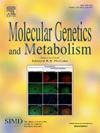Qualitative study of fatigue in adults with primary mitochondrial disease: Development of the PROMIS Fatigue Mitochondrial Disease Short Form
IF 3.5
2区 生物学
Q2 ENDOCRINOLOGY & METABOLISM
引用次数: 0
Abstract
Background
Fatigue is a debilitating symptom in patients with primary mitochondrial disease nPMD). Developing new treatments that improve fatigue is a patient priority but is hampered by a lack of fit-for-purpose patient-reported outcome measures (PROMs). We aimed to understand the impact of fatigue on the lives of people with PMD and develop a brief PMD-specific PROM to evaluate fatigue in clinical trials.
Methods
Adults with genetically confirmed PMD and self-reported moderate-to-severe fatigue and myopathy/exercise intolerance participated in a concept elicitation interview to explore their experiences of fatigue. Interview transcripts were coded thematically using MAXQDA™. Characteristics and impacts that emerged from the interviews were mapped to items in the PROMIS® Fatigue item bank. Participants then engaged in a cognitive interview to assess relevance and understandability of PROMIS Fatigue items considered for the PROM.
Results
Twelve adults with PMD (n = 8 women, age 20–75 years) were interviewed. The most frequently reported characteristics of fatigue included tiredness, muscle weakness/fatigue, exhaustion, lack of energy, and mental fatigue. Fatigue affected patients' ability to perform daily life activities, including household chores, leisure activities, physical activity/exercise, and work/school, and negatively affected mood and relationships. Nine items were included in the final PROM based on level of endorsement of underlying concepts elicited by the concept elicitation interviews and relevance, clarity, and ease of answering, as assessed in the cognitive interviews.
Conclusion
The nine-item PROMIS Fatigue Mitochondrial Disease Short Form is the first PROM designed specifically to assess fatigue in PMD. This study demonstrates the content validity of the short form, and future longitudinal studies will assess its psychometric properties.
成人原发性线粒体疾病患者疲劳的定性研究:PROMIS疲劳线粒体疾病简表的开发
背景:疲劳是原发性线粒体疾病(nPMD)患者的一种衰弱症状。开发改善疲劳的新疗法是患者的首要任务,但由于缺乏适合目的的患者报告结果测量(PROMs)而受到阻碍。我们的目的是了解疲劳对PMD患者生活的影响,并开发一个简短的PMD特异性PROM来评估临床试验中的疲劳。方法:经基因证实的经前抑郁、自述中重度疲劳和肌病/运动不耐受的成年人参加了一个概念启发访谈,探讨他们的疲劳经历。访谈记录使用MAXQDA™进行主题编码。访谈中出现的特征和影响被映射到PROMIS®疲劳题库中的项目中。然后,参与者进行认知访谈,以评估PROM考虑的PROMIS疲劳项目的相关性和可理解性。结果12例成年经前抑郁患者(女性8例,年龄20 ~ 75岁)接受了访谈。最常见的疲劳特征包括疲劳、肌肉无力/疲劳、疲惫、缺乏能量和精神疲劳。疲劳影响患者进行日常生活活动的能力,包括家务、休闲活动、体力活动/锻炼和工作/学习,并对情绪和人际关系产生负面影响。9个项目被包括在最终的PROM中,基于概念引出访谈和认知访谈中评估的相关性,清晰度和易于回答的潜在概念的认可水平。结论9项PROMIS疲劳线粒体疾病简表是首个专门用于评估PMD患者疲劳的PROM。本研究证明了短表格的内容效度,未来的纵向研究将评估其心理测量特性。
本文章由计算机程序翻译,如有差异,请以英文原文为准。
求助全文
约1分钟内获得全文
求助全文
来源期刊

Molecular genetics and metabolism
生物-生化与分子生物学
CiteScore
5.90
自引率
7.90%
发文量
621
审稿时长
34 days
期刊介绍:
Molecular Genetics and Metabolism contributes to the understanding of the metabolic and molecular basis of disease. This peer reviewed journal publishes articles describing investigations that use the tools of biochemical genetics and molecular genetics for studies of normal and disease states in humans and animal models.
 求助内容:
求助内容: 应助结果提醒方式:
应助结果提醒方式:


